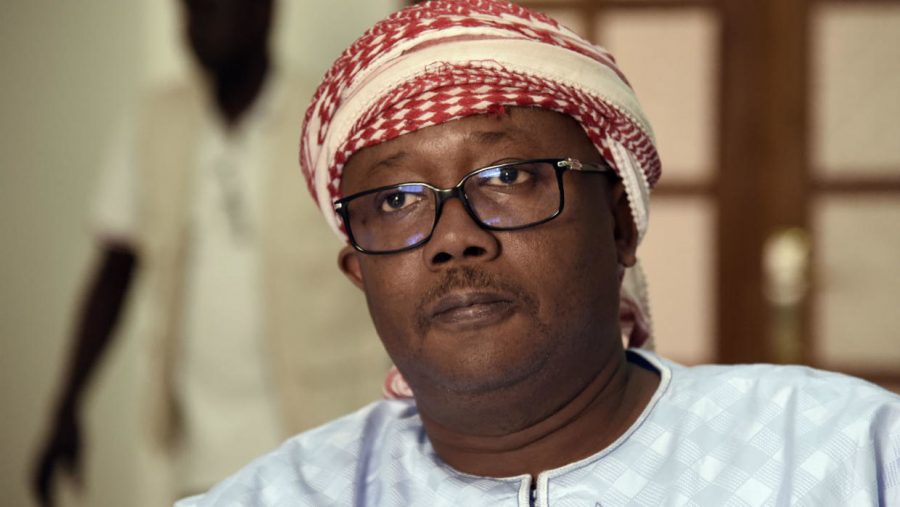“This time, I decided to buy, as we have done with the Ministry of Health and others. We will do it step by step,” Umaro Sissoco Embaló said at the handover ceremony at the Ministry of Interior.
Earlier, the president was at the Ministry of Defense, handing over 30 vehicles.
At the Ministry of Interior, the head of state handed over 28 cars, 50 motorcycles, uniforms, and other equipment, some of which were offered by Turkey.

The president stressed that the state provides more funds for maintaining public order and pointed out to the defense and security forces that the equipment delivered is part of public funds and must be appreciated.
“They must use the vehicles responsibly. It must be clear that those who know how to drive use the car and that the car must be clean,” he said, stressing that a control chip will be integrated into the vehicles.
Umaro Sissoco Embaló also said that “Bissau will be completely asphalted by February,” recalling the work already carried out at the National Hospital Simão Mendes, the largest hospital in the country, as well as the work started at the main academy in the capital.
“In our generation, it’s not only about concrete but also ambition. It’s just a matter of organization and transparency in our administration,” he said.
The president also called on the military and security forces to be neutral, not to interfere in politics, and not to use force against people, but “pedagogy.”
HAMPERED POLITICAL SYSTEM
Guinea-Bissau’s political system has been hampered in recent years by divisions between the president and the parliament and within the main political party.
Conditions for civil liberties have gradually improved as the country has recovered from the aftermath of a military coup in 2012, though police continue to disrupt some demonstrations.
Corruption is a major problem that has been exacerbated by organized criminal activity, including drug trafficking.
The small West African nation of Guinea-Bissau appeared to be hurtling toward a military coup in late January — the latest in a spate of military takeovers across a swath of Africa in the past year that has signaled a worrisome democratic backslide.
But hours later, the country’s leader suddenly reappeared to declare he had thwarted his armed foes.
Addressing the local news media, President Umaro Sissoco Embaló said that “many” members of his own security forces had been killed in what he termed a “failed attack against democracy” with possible links to drug trafficking.
Others had been arrested, he said, but he could not say how many.
“It wasn’t just a coup,” he said. “It was an attempt to kill the president, the prime minister, and the entire cabinet.”
Guinea-Bissau has weathered at least four successful coups — the last in 2012 — and perhaps a dozen attempted ones since it gained independence from Portugal 48 years ago.
But the loud wave of international alarm that the attempted coup generated was a mark of growing jitters in the West Africa region, where, after years of halting democratic progress, a rash of military takeovers has stoked growing fears of “coup contagion.”
President Embaló of Guinea-Bissau is a former army general who came to power in 2020 following a disputed election the previous year.
Political instability has been a constant in Guinea-Bissau, a country of about 1.4 million people.
After the country’s 11-year war for independence ended in 1974, its new leaders were faced with trying to unify an extremely diverse population, many of whom were spread out over an archipelago of 88 islands.
Since then, there have been so many coups and attempted coups that the counts vary. Much of the turmoil has been fueled by the country’s status as a major transit hub for drug smuggling.
In the 2000s, the United Nations labeled Guinea-Bissau Africa’s first “narco state” for the large amounts of South American cocaine that were landing there before being smuggled into Europe.
The drug economy has fueled corruption in government and the military, destabilizing the country’s fragile politics, said Jonathan Powell, an associate professor at the University of Central Florida, who studies coups in Africa.
“The drug trade is important in Guinea-Bissau because it’s been so easy for that industry to hijack the loyalty of many folks in the upper echelons of the armed forces,” he said.
There have been 214 attempted coups in Africa since 1950, up to the recent one in Burkina Faso, Mr. Powell said his research had shown. Exactly half of them — 107 — have succeeded, he added.
Guinea-Bissau has seen several high-profile assassinations in the past two decades, including the killing of President João Bernardo Vieira in 2009, and a mutiny in which the army chief of staff was killed in 2003.
But the country has enjoyed a period of relative political stability since the last successful coup in 2012, in part thanks to what the United Nations termed a “peacebuilding mission.” But the mission was wound down in December 2020.
When President José Mário Vaz completed his term in office in 2019, it was the first time a democratically elected leader had done so in the country’s post-independence history.

